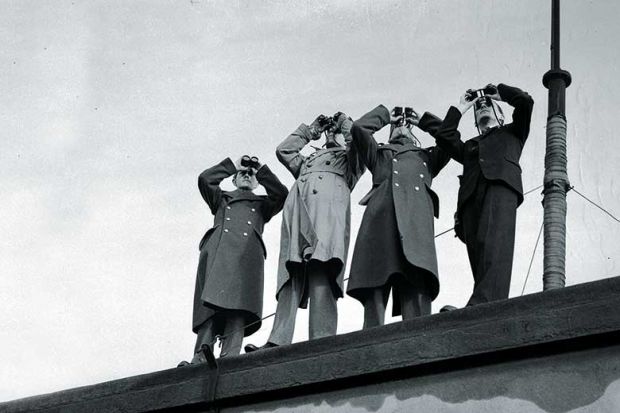Wikipedia hit the mainstream in 2007. Millions of students began using one website to get an introduction to their new course subjects, and many, perhaps unsurprisingly, were not particularly careful about their use of copy and paste.
Wikipedia was the victim of its own success. It expanded rapidly and gained a place in the public consciousness before the community and organisations that support it had a chance to catch up. Its support network of charities includes the Wikimedia Foundation – which owns Wikipedia – based in San Francisco, and independent local Wikimedia chapters across the world such as ours, Wikimedia UK, which began in 2009.
By then, many in academia had already formed a bad opinion of Wikipedia. The perception of it as being unreliable and lacking academic rigour resulted in it being discounted as a useful tool.
But by 2016, journal articles were being published that looked at the remaining obstacles to using Wikipedia in academia.
Piotr Konieczny, a Wikipedia editor and sociology professor at the University of Hanyang in South Korea, noted that: “Wikipedia is not our foe but rather an ally – a new and, perhaps, somewhat uncouth ally – but an ally nonetheless, and one that I will argue that educators should embrace more wholeheartedly for the good of our students and the wider society.”
Soon after Wikimedia UK began, it started to engage with the world-renowned galleries, libraries, archives, museums and educational institutions based in the UK.
To work with these institutions, an entirely new kind of role was created, called a Wikimedian in Residence. In 2010, Wikimedia contributor Liam Wyatt began the first ever residency by organising a volunteer placement as Wikimedian in Residence at the British Museum. Since then, we have collaborated with institutions including the Bodleian Libraries at the University of Oxford, the British Library, the National Library of Scotland, the National Library of Wales, the Royal Society, the Wellcome Library and the University of Edinburgh.
Many other institutions have run smaller-scale projects and events supported by our charity and the volunteer community in the UK.
Wikimedians in Residence are often tasked with training staff members at their host institution to use Wikipedia (and its sister projects) as part of their work as an academic, curator, librarian or researcher.
With time and increased exposure, the cynicism towards Wikipedia has turned into a realisation of its importance as a communication medium read by hundreds of millions of people every month.
In a recent report on the Plos science and medicine blog, Rice University’s Kaden Hazzard noted that, “Wikipedia pages on physics have a huge impact. The numbers speak for themselves. The page ‘Quantum computing’ is viewed in excess of 3,000 times every day. ‘Nanotechnology’ is viewed more than 2,000 times per day. Even a topic like ‘Monte Carlo method’ is viewed 2,000 times per day. I could teach every semester for my entire lifetime and not reach as many students as these Wikipedia pages reach in a single day.”
Educators are coming to realise that there is no point ignoring Wikipedia.
It is a summary of secondary sources, and not what could be considered an academic-level source. We don’t want people to cite it, but that doesn’t mean that abstinence-only Wikipedia education will work. The important thing is to get students to use it in the right way, as a starting point for research that can teach important writing, IT and critical thinking skills.
Wikipedia is not just a free encyclopaedia, it’s about free content that anybody can reuse, remix and consume in any way they want to. Creating openly licensed materials that can help people educate themselves for free, and which artists, journalists, and others can use in their work is vital to keep creativity flourishing.
In this, Wikimedia UK has the same aims as universities, and we provide valuable resources that they can use to educate their students.
We believe that we haven’t debased education, we’ve democratised it. Perhaps there are some universities who revel in their ivory towers and will never work with us.
But I don’t think that is how the majority of them perceive Wikipedia. And as universities are increasingly staffed by digital natives, the future is promising for an ever deeper partnership between Wikimedia and higher education.
John Lubbock is communications coordinator of Wikimedia UK.
Register to continue
Why register?
- Registration is free and only takes a moment
- Once registered, you can read 3 articles a month
- Sign up for our newsletter
Subscribe
Or subscribe for unlimited access to:
- Unlimited access to news, views, insights & reviews
- Digital editions
- Digital access to THE’s university and college rankings analysis
Already registered or a current subscriber? Login



